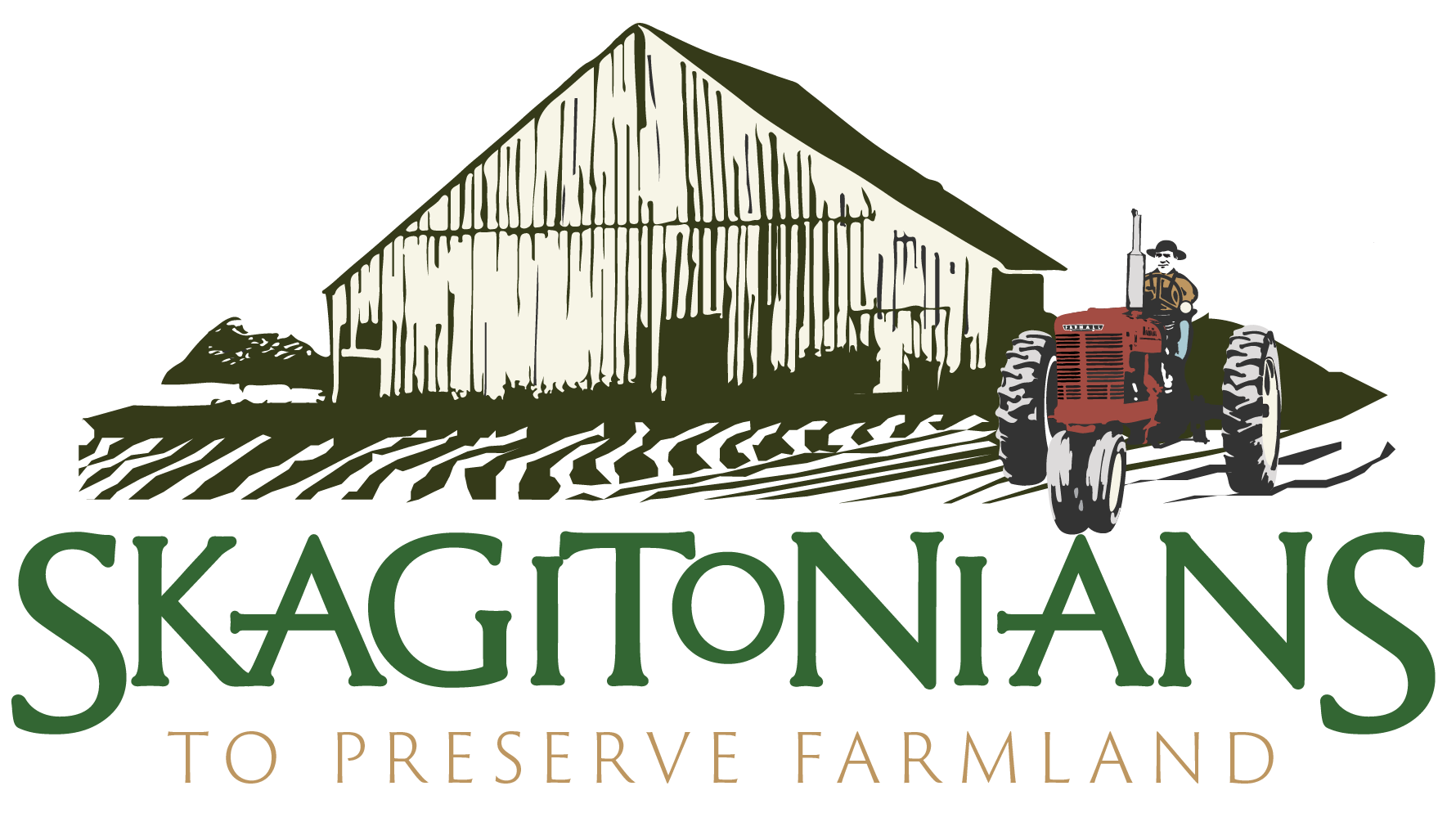Skagit Valley Farm, LLC - Quietly Supplying the Brussels Sprout Renaissance
“It’s amazing that we take this little baby transplant that we start planting in April, and here we are in January, and into mid-February, still harvesting miniature trees . . .”
It is the depths of winter in Skagit County. Most of the farm fields lay dormant and muddy, the unrelenting rain beating at the soil. Many farmers take a small break from the fields to maintain equipment, and plan for the coming year.
On one of these blustery January days, Mike Elde hit the fields and starts the harvest.
“They are an amazing plant,” Elde said as he knelt beside a stem of Brussels sprouts in the 90-acre field. Neither Elde nor the Brussels sprouts seemed fazed by the cold rain and heavy wind. “It’s amazing that we take this little baby transplant that we start planting in April, and here we are in January, and into mid-February, still harvesting miniature trees. They have a really strong stalk, and they can take this strong Washington weather and be harvested fresh.”
Elde is the Director of Agriculture Operations for Skagit Valley Farm, LLC, which was founded in 2013, and has quickly grown to become one of the largest vegetable producers in the state. Their produce is found in the major food chains in the area, ranging from Wal-Mart, Safeway, Costco and Fred Meyer, to Whole Foods.
The organization farms about 6,500 acres, both conventional and organic, here in the Skagit and in eastern Washington, according to the farm’s Linkedin profile.
Founder and CEO Tony Wisdom said much of the farm’s success is because of its team of people and its focus on using technology in new ways. “We’re interested in finding technology not normally used for agriculture and adapting it to farming,” he said.
The company uses robotics for weeding, transplanting vegetable starts and sorting products for quality, using vision on color and defects. The innovation has helped Skagit Valley Farms stabilize their workforce into a more specialized, tech-heavy and year-round employer, rather than having to rely heavily on seasonal labor.
Skagit Valley Farm is known for quietly farming and making its operations as economically efficient as possible. “We are rewarded by a job well done,” Wisdom said. “During our careers, we are only going to have about 40 tries (growing seasons) to get this right. We take that responsibility very seriously.”
On the blustery January day, workers cut the Brussels sprouts stalks by hand and fed them into specialized harvesters from the Netherlands, which remove the leaves and sprouts, feeding the sprouts into a hopper. The sprouts were then loaded into 13-ton trucks and taken to a large cooling and operations center in Burlington. The company’s large red trucks, with green mounds of sprouts, were in stark contrast to the dim, dreary background of the Skagit Flats on one of the year’s shortest days.
The perfectly round sprouts were poured onto a belt and pulled inside the building to be mechanically sorted and packaged, then shipped across the country.
Skagit Valley Farm rode an upward wave of newfound Brussels sprout popularity.
“They’re experiencing a renaissance,” Wisdom said, which he attributes to cooking shows that have taught people how to eat them in new ways.
A National Public Radio article titled “From Culinary Dud to Stud,” says farmers are now growing sweeter varieties, and chefs are finding creative ways to showcase this once-rebuked vegetable.
“Foods go in and out of style. Few of them, though, have gone through as dramatic a renaissance in their reputation as Brussels sprouts,” the article states. “Demand is booming; farmers are getting four or five times more money than they did a decade ago for their crop.”
Skagit Valley Farm is now the biggest Brussels sprouts producer in the state, Wisdom said.
Even Elde, a 4th generation Skagit County farmer, said he didn’t like Brussels sprouts until he came to work at Skagit Valley Farm two years ago and his family found new ways to prepare the vegetable.
“Now, I love them,” he said.
But the most fulfilling part of his job is when his kids see bags with Skagit Valley Farm on them at Costco.
“They get so excited,” he said. “This farm is an opportunity for me to get daily satisfaction out of growing something you will see in the store or take home and share with your family.”
Story and photos by Tahlia Honea: info@skagitonians.org




